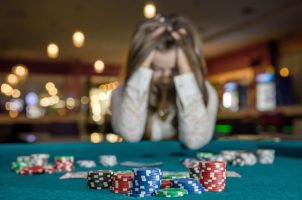Party Drug Ketamine to be Studied as Treatment for Problem Gambling
Posted on: January 16, 2023, 03:26h.
Last updated on: January 16, 2023, 04:09h.
Drugs and gambling generally make terrible bedfellows. But research will soon begein to study the effects of the horse anesthetic turned illegal party drug, ketamine, on problem gamblers.

Academics from the University of Exeter in England are working on the theory the drug’s impact on memory could be used to break down the positive reinforcement felt by gamblers when they win, thereby inhibiting the urge to gamble.
The idea is that addictions are fundamentally acquired or learned behaviors, and that ketamine has the ability to “rewrite” these memories. A 2019 study found the drug’s effect on memory showed promise in treating alcohol addiction.
Memory Reset
“Something that we’re really interested in tackling in gambling addiction is a kind of superstitious thinking which we particularly think ketamine might work on,” Celia Morgan, Professor of Psychopharmacology at Exeter, told scientific news site Technological Networks.
[This] is where gamblers come to associate certain cues, and they’ve got to overlearn the association between a cue and winning. They enter into very superstitious behaviors, which is quite unique to gambling,” she added.
Researchers are currently looking for human guinea pigs to take part in the study. Volunteers must be regular gamblers, and they must be over the age of 18, for obvious reasons.
Down the ‘K-Hole’
Developed as an anesthetic and still used in veterinary medicine, particularly on larger animals, ketamine is derived from Phencyclidine (PCP), also known as angel dust. It is used recreationally for its ability to induce a euphoric and mildly hallucinogenic state.
Users who take too large a dose have reported experiencing an unpleasant state of dissociation and confusion, known as a “K-hole.”
We are using one of the capacities of the ketamine which is to block a process of re-stabilization of memory. In the study that we’re doing, we’re going to reactivate gambling memories. We’ll be showing people, depending on what their modality of gambling is, a roulette wheel or slot machines or horses, and this reactivates the memory,” Morgan said.
“Normally in memory, this means that this memory becomes active and you’re able to update it. Then it’s restabilized – saved again, in computer terms – and is laid down more strongly,” she added. “If you give ketamine during this time of reactivation, what’s been found particularly in animals is that this can weaken the memory trace. That’s what we’re looking at in this study.”
Related News Articles
UK Gambling-Related Suicide Research Program Seeks Funding Proposals
Gaming Professor Says Responsible Gaming Programs Lacking in Effectiveness
Wondr Nation Donates $250K to Responsible Gaming Research at UConn
ESPN Donates $200K to UNLV Gaming Institute for Sports Betting Media Analysis
Most Popular
Mirage Las Vegas Demolition to Start Next Week, Atrium a Goner
Where All the Mirage Relics Will Go
Most Commented
-
Bally’s Facing Five Months of Daily Demolition for Chicago Casino
— June 18, 2024 — 12 Comments
















No comments yet